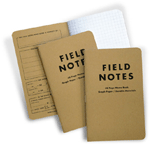by Margaret Atwood
Nan A. Talese
Buy at Powell’s »March 9, 2010
Colum McCann
Nami Mun
Judged by
First, let me get some caveats out of the way. Since my co-editor Andrew and I are judging in the first round this year (in past years we’ve judged the Zombie Round), I want to say that I wasn’t involved in laying out this year’s brackets—that task was left up to the seeders. So I didn’t play a part in putting these two books together, Colum McCann’s Let the Great World Spin and Nami Mun’s Miles From Nowhere, even though they’re both about New York—and now having read them, I’d say it’s a pretty great pairing.
Also, I didn’t know anything about either of the books beforehand, except that McCann’s book won the National Book Award and Mun’s was shortlisted for a prize named after a fruit—which isn’t to slag it, it’s just what I remembered. Hosts of tournaments bearing cocks don’t get to throw stones.
I also hadn’t read either author before, don’t know them personally, and I didn’t know anything about the books’ plots. Mun and I share a publisher, but nobody there in common, and we’ve never met.
I’d seen both books in my local shops and loved the covers, but that’s all I knew.
Anyway, I went into the match nude and open-minded and free, and wham—I really enjoyed reading both books, especially as a pair. As New York City books, they share neighborhoods, and as novels they show similarities in structure and manner. But they differ in scale and cohesion, and what, in the end, they pull off.
Miles From Nowhere follows one young woman very closely: 13-year-old Joon leaves a bad home and wrecked family to be various things in New York: homeless, an Avon lady, a criminal, a drug addict, a recovering drug addict, a hostess, a drunk, and lots more.
 Keep your lists of books, quotes, and sketches in Field Notes Memo Books. Check our exclusive offer for ToB readers.
Keep your lists of books, quotes, and sketches in Field Notes Memo Books. Check our exclusive offer for ToB readers.Let the Great World Spin watches many people, both distantly and from inside their heads: an Upper East Side lady who lunches; a group of prostitutes and the priest who loves them; two artists in a vintage Pontiac Landau; and most importantly Philippe Petit, who strung a tightrope between the Twin Towers in 1974 and ties all the characters together.
In Miles From Nowhere, Joon is callous and frank in the dark—it gets very dark—but Mun gives her deep reserves and plays it cool and soft. Mun observes things so strikingly at times, I thought she was channeling Mitch Hedberg. And I loved that pity didn’t play a part. Even when Joon’s fate seems doomed, Mun’s narrative is tight, subdued, and startling. The only dirt is in the plot; her sentences are consistently polished light and clean.
Sometimes, though, clean can be off-putting. Around halfway through Miles From Nowhere, those light sentences were just a little too whittled (for my tastes). Also, there was a nagging feeling at the same time that any chapter in the book could have been successfully published on its own as a short; that each chapter was more devoted to itself than to the book.
I love short stories, but I wanted that knocked-out feeling I get when a great, cohesive novel shuts down.
I greatly enjoyed Miles From Nowhere from start to finish, but after a dozen pages with Let the Great World Spin, I knew which book would win. McCann’s written a monster: It wants to consume the Earth whole while naming every molecule on the way down. It’s a blast. My criticism would focus on the ending segments of the book, from “Centavos” on, when I felt it teetering on its supports—when for me the book’s world finally started to wobble, and I wasn’t convinced that the accounts being added were taking the book’s questions further rather than repeating things I’d already heard—but my metaphors are jumbling up and I’ll leave that for other judges to ascertain.
Let the Great World Spin wins.
Rosecrans Baldwin is a founding editor of TMN. His first novel, You Lost Me There, will be published in August 2010 by Riverhead Books. Known connections to this year’s contenders: ”Nami Mun, Marlon James, and I share a publisher, and I once tried to rent Wells Tower’s house.”